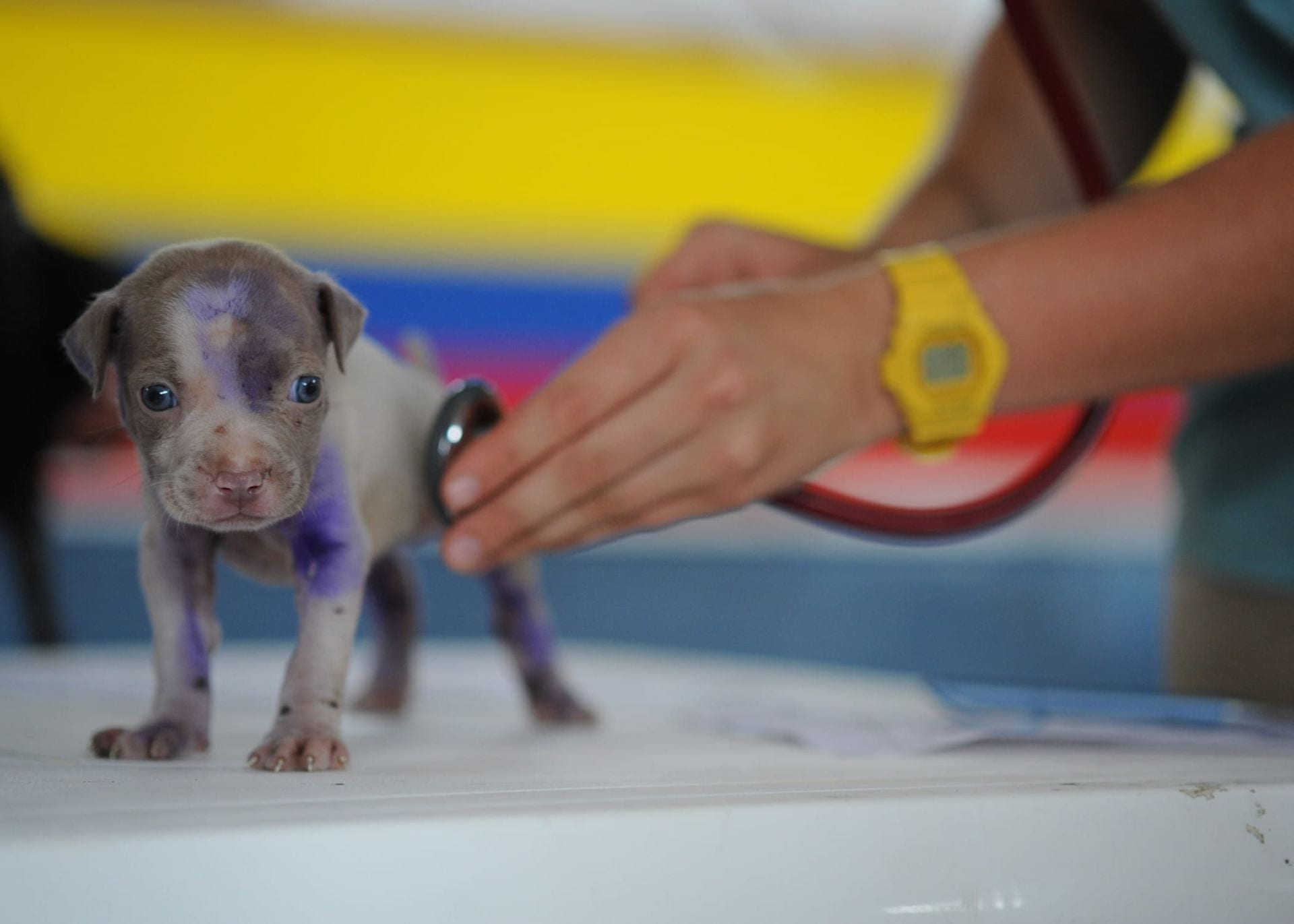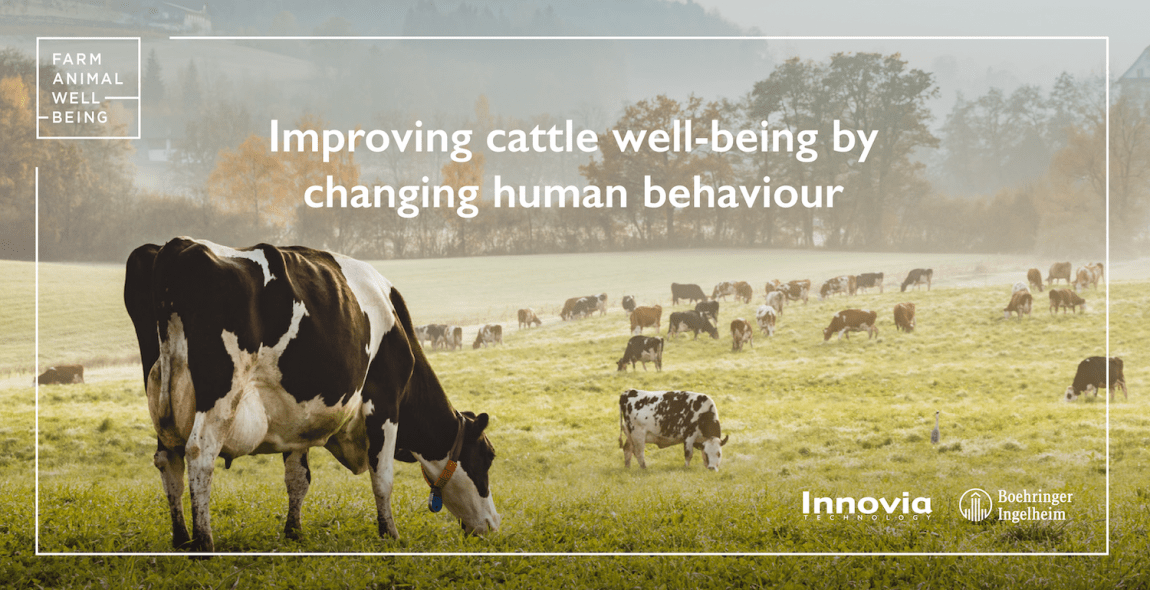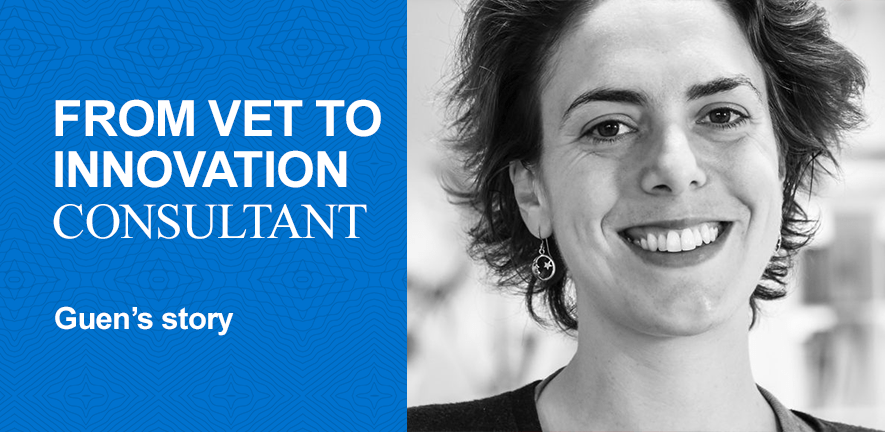Guen Bradbury studied and worked in veterinary medicine, before embarking on her consulting journey. In this blog, she discusses her experience at Innovia and how others with a similar background can follow in her footsteps
I studied veterinary medicine with pharmacology at Jesus College and graduated in 2011.
Before I started work at Innovia Technology, I worked in companion animal veterinary medicine, taught at a vet school, and worked as a clinical anaesthetist on medical studies involving laboratory pigs.

Innovia is a Cambridge-based innovation consultancy.
We work in multidisciplinary teams – across science, engineering, behavioural science, and design – to create exciting new products and services for some of the biggest companies in the world. Our clients come from a variety of industries such as medical, energy, food, cosmetics, and apparel. It’s an exciting job – I’ve gained experience in multiple industries, have been able to apply the knowledge from my degree projects, and have contributed and led world-class multidisciplinary teams, all while maintaining a great work–life balance.
I relish the variety of work that I get involved in – about half is medical, and usually none is directly veterinary
I love what I do. I enjoy applying skills and knowledge that I gained in my degree and in my previous jobs to completely unforeseen challenges. I relish the variety of work that I get involved in – about half is medical, and usually none is directly veterinary. I like to think from first principles – this helps when I have to think on my feet, and it helps me to operate on and manage projects in many different sectors. I also enjoy selling innovation work – the sales process is shorter than a project and more similar to the veterinary work in which I started.

My degree gave me a strong understanding of the fundamental principles of my discipline and the ability to apply them to unfamiliar problems.
Vets can’t learn about every disease in every species; they have to work things out and solve different problems. Additionally, my years in practice helped me develop my client-facing skills (ten-minute consultations certainly help you improve communication) and increased my team-working abilities.
There is a reason that we call a vet’s room a ‘consulting room’: the consultation process is the same, whether a client wants advice on their dog or an innovation problem
When I talk with our clients, they are often surprised that I’m a vet, but they don’t realise how transferable my skills are. Not only do I have a very broad training in the biology of health and disease, but I’m also a trained consultant. There is a reason that we call a vet’s room a ‘consulting room’: the consultation process is the same, whether a client wants advice on their dog or an innovation problem.

I’ve recently been lucky enough to work on a project that is pretty close to perfect for me.
We’ve been working with the pharmaceutical company Boehringer Ingelheim, exploring the human behaviours that affect cattle well-being, and how these can be altered to improve the experience of cows. To improve animal well-being, we first need to understand the needs of the animal and how they are affected by human behaviour – for example, many cattle suffer pain when humans assist with calving. However, in order to effect change, we ultimately need to understand and change the behaviour of people – especially that of farmers and vets.
For this project, I’ve worked with people from a variety of disciplines – vets and biologists like myself, psychologists and behavioural scientists, and product and graphic designers. Working in multidisciplinary teams is so stimulating – I love learning about aspects of materials science, chemistry, or manufacturing. Similarly, at least some of my colleagues are now better educated on niche aspects of the mating behaviours of different species (if you’ve never googled ‘orgling,’ do it now).
To work out what sort of jobs you can do, you need to critically assess what you really enjoy about the vet job and use that to inform where you look
Many vets decided to become vets when they were younger than ten years old…
…it’s really hard to pick a career at that age! It then becomes hard to acknowledge that your lifelong dream maybe doesn’t represent the reality that you want. Along with pressure from friends and family, it can be difficult to move out of practice. However, vets have a whole range of transferable skills – medical and surgical knowledge, first-principles biology, communication, team-working, sales – the list goes on. To work out what sort of jobs you can do, you need to critically assess what you really enjoy about the vet job and use that to inform where you look. Passionate about first-principles science? Try innovation. Love explaining things to clients? Try medical writing or PR. Enjoy trying new things and developing your skills on the job? Look for jobs in biology start-ups. And finally, don’t avoid applying because you’re worried you’ll get rejected – see it as practice to help you land the job you really want.

